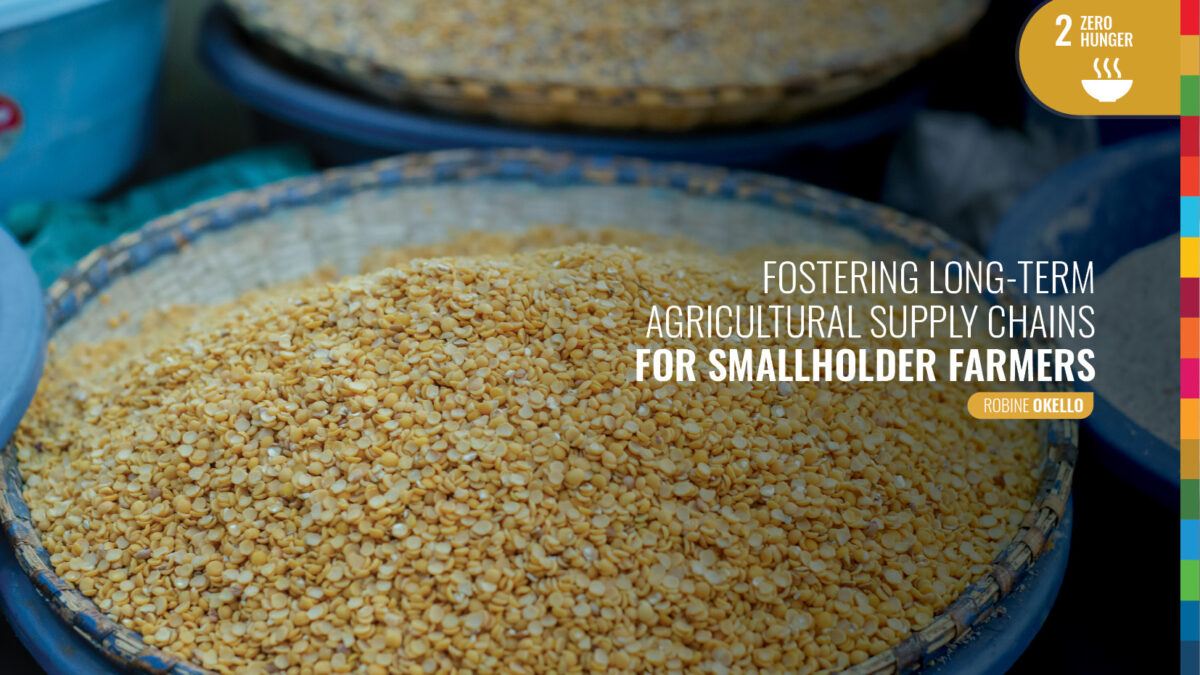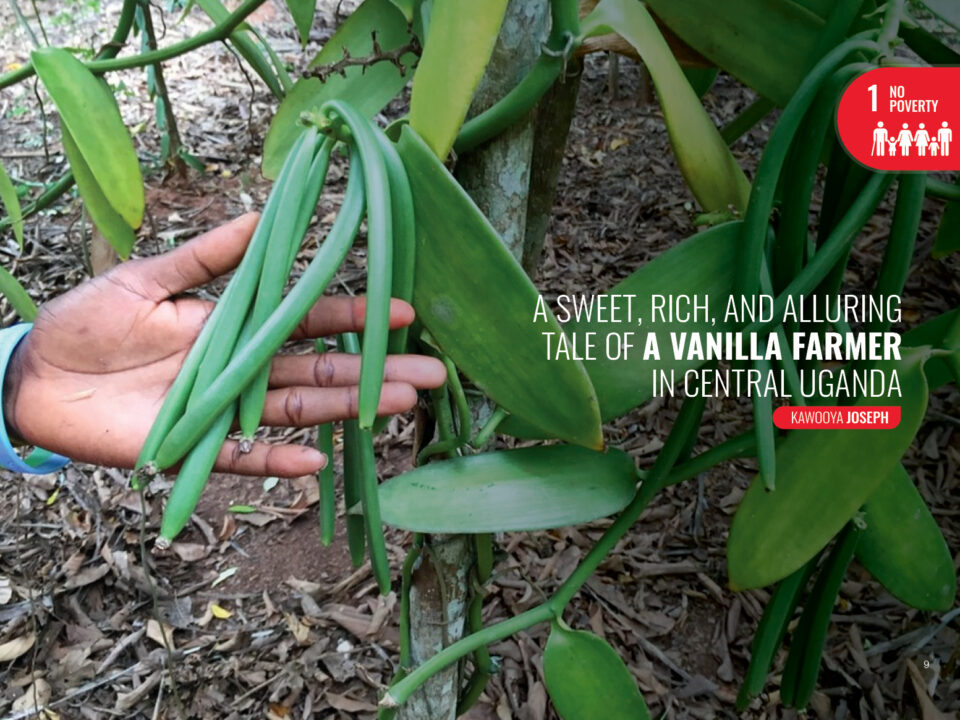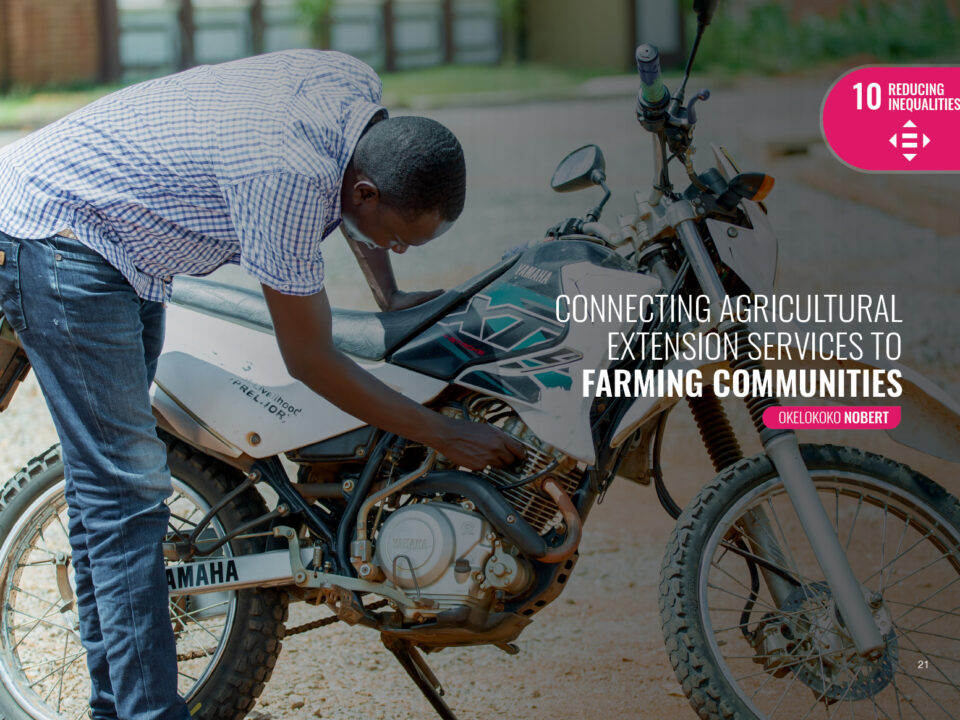Fostering long-term Agricultural Supply Chains for Smallholder Farmers
Finding the right market for grains at the right price is difficult, especially in farming communities in Northern Uganda. Meet Robine Okello, a TAGDev scholar who studied Agri Enterprise Development at the Master’s level at Gulu University. He is currently a volunteer at the African Union Commission in Ethiopia, where he is in charge of industrial policies and Agri-value chain analysis.
The COVID-19 Lockdown forced Okello to flee Gulu for Lira, where he worked to support farmers in the community as part of his social enterprise course requirement. He founded LAPIT Blessed Produce Store (SMC), also known as “Family Store Produce Enterprises,” to provide small-scale farmers with consistent market access at reasonable prices for their grain production.
Okello also aimed to digitize agricultural value chains and build sustainable agricultural supply chains to boost smallholder farmers’ incomes and confidence in investing in production. This creates rural employment opportunities, particularly for youth as village agents, and enables agribusinesses to source sustainably and create shared value.
His savings from the stipend provided the initial financial contribution for the business, which was followed by a USD5,000 grant from RUFORUM and a USD20,000 grant from ImpactHer. The store sells a variety of goods, including rice, beans, sesame, and posho. He decided to add value to maize so that it could be distributed to schools.
The business’s distinguishing feature is that it sells higher-quality products than its competitors, giving customers exactly what they want. He has linked his business to a community model and established a network of local farmers from whom he sources produce. Farmers are encouraged to continue producing because they expect to profit from their output, and he does not defraud them.
To date, the business has made an impact by connecting over 300 smallholder grain producers to smart markets, supporting over 20 individual enterprises along agricultural supply chains, covering and serving eight districts in Northern Uganda’s Lango sub-region, and empowering and connecting over 30 youth and women groups to livelihoods and markets.
There have been a few setbacks along the way, such as the disruption in the supply chain caused by the COVID-19 pandemic, but consumers have remained optimistic. As a result, he raised his prices because he did not want to compromise on quality. He also had to take drastic measures to ensure sustainability, such as laying off some employees. Transport costs were also high due to the government’s stringent regulations. Finally, he mentions that production costs have been high, in addition to registration and licensing fees.
When it comes to the future, Okello is excited about the prospect of establishing a national Non-Governmental Organization (NGO) focused on food insecurity and hunger. He admits that its preparation is nearly complete and that documentation, licensing, and a website are in the works.
It will be called “Hunger Relief Africa,” and he hopes to have a larger team across Africa with country offices in the neediest countries. This Organization’s unique approach will be to use technology to distribute excess food from supermarkets, households, and restaurants, which they will then aggregate and distribute to those who are less fortunate. Okello says in his closing remarks that it is critical for the youth to be patient and respectful because it will help propel them to unfathomable heights.
These Stories are a result of the documentation from the RUFORUM and Mastercard Partnership under the TAGDEV Project, Gulu University: https://ruforum.wordpress.com/category/tagdev-project/.




